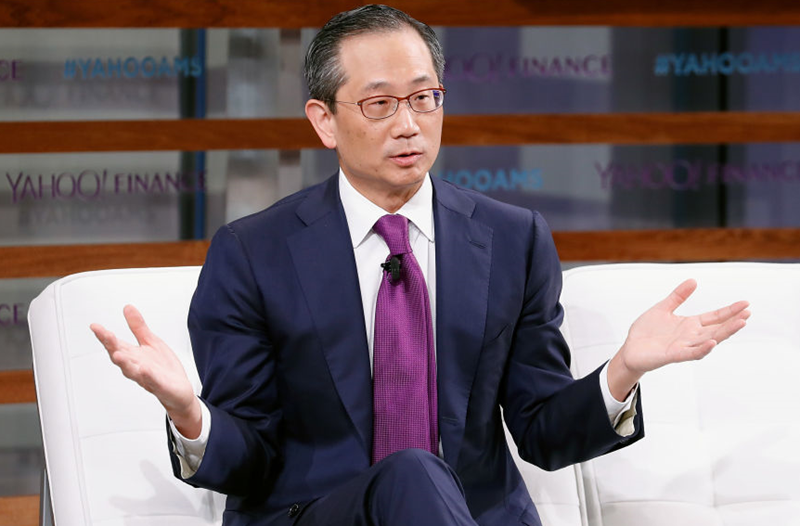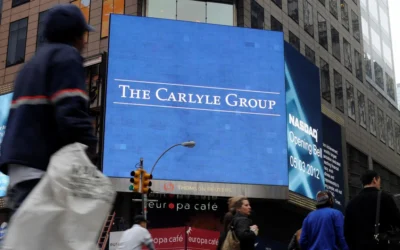The Carlyle Group and Apollo Global Management both returned to profitability in the second quarter of the year, with double-digit appreciation in the firms’ private equity portfolios keying a rebound from massive first-quarter losses that came after the pandemic caused markets to plummet in March.
Carlyle reported 13% growth in its private equity portfolio during its Q2 earnings report on Thursday, compared to an 8% decline in Q1. Apollo, meanwhile, announced an 11.7% appreciation for its PE assets in its own earnings report, a reversal from a 21.6% dip in Q1.
Still, both firms expect to continue experiencing considerable upheaval in the foreseeable future, driven by the pandemic and a host of other events that are turning 2020 into an unprecedented year.
“We think there’s just going to be volatility as the market absorbs earnings that are coming in a little softer than expected,” said Apollo co-founder Josh Harris. “You have significant volatility around COVID, around the political environment in the US and the US-China relationship.”
Carlyle’s results come less than two weeks after one of the firm’s co-CEOs, Glenn Youngkin, announced plans to step down at the end of September to work in public service, leaving Kewsong Lee as the sole CEO. Shortly thereafter, a Bloomberg report described certain tensions between the pair during their two-plus years of joint leadership. Youngkin was not on the earnings call, but Lee had only good things to say about the 25-year Carlyle veteran.
“We accomplished a lot, and I’m proud of the work we did together to make Carlyle an even stronger firm,” Lee said. “He is a culture carrier and a class act.”
Carlyle posted distributable earnings in Q2 of $198.4 million, or 53 cents per share, easily outstripping reported analyst estimates of 36 cents per share. That marks a roughly 13% quarter-over-quarter jump in the amount available to pay to shareholders, but a 7% year-over-year decline.
The firm also announced $145.9 million in profit after a $612 million loss in Q1, while assets under management grew from $217 billion to $221 billion. The value of Carlyle’s credit funds jumped 8%, while its natural resources portfolio appreciated by 3% and its real estate funds by 2%.
Apollo logged $205.2 million in Q2 distributable earnings, or 46 cents per share, falling just short of reported analyst expectations in the closely watched metric. That’s an 11% YoY dip and a 24% increase from Q1. Apollo announced an overall profit of $446.3 million for the quarter, or $1.84 per share, after losing $996.2 million in Q1.
Apollo’s AUM grew from $315.5 billion at the end of Q1 to $413.6 billion at the end of Q2, a spike largely driven by Apollo-backed Athora‘s acquisition of European insurance peer Vivat, which reportedly added $45 billion to the firm’s coffers. Apollo was also busy in Q2 making opportunistic debt investments in public companies hit hard by the coronavirus crisis. In two examples from April, the firm teamed with Silver Lake to invest $1.2 billion in travel booking company Expedia, and announced it would inject $300 million in Cimpress, an Irish commercial printing company that owns Vistaprint.
Apollo’s Harris indicated that more such timely deals may be on the way, although future investments may be more reliant on equity than debt.
“Private equity pipelines are actually picking up,” he said. “There continues to be value-oriented opportunities or sweet spots. All of what we’ve done is debt in our private equity businesses. I think we’re seeing that changing a little bit as our pipeline is changing into more traditional private equity.”
Apollo’s stock closed Thursday down nearly 7%, while Carlyle’s share price fell by 1%.
Source: Pitchbook
Can’t stop reading? Read more
Carlyle and Goldman Sachs open private credit funds to Willow users with $10,000 minimum
Carlyle and Goldman Sachs open private credit funds to Willow users with $10,000 minimum Carlyle,...
EQT, PAI, and Stone Point shortlisted for €2bn takeover of Castik-backed Global Group
EQT, PAI, and Stone Point shortlisted for €2bn takeover of Castik-backed Global Group EQT, PAI...
CAIS Advisors unveils retail vehicle giving investors a stake in elite sports and media
CAIS Advisors unveils retail vehicle giving investors a stake in elite sports and media Eldridge...




